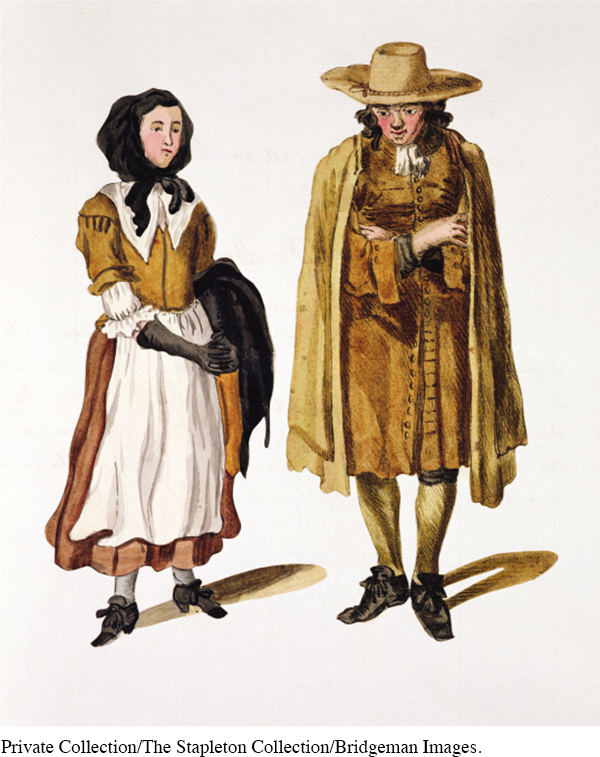The American Promise: Printed Page 94
The American Promise, Value Edition: Printed Page 87
The American Promise: A Concise History: Printed Page 103
New Jersey and Pennsylvania
The creation of New York led indirectly to the founding of two other middle colonies, New Jersey and Pennsylvania. In 1664, the Duke of York subdivided his grant and gave the portion between the Hudson and Delaware rivers to two of his friends. The proprietors of this new colony, New Jersey, quarreled and called in a prominent English Quaker, William Penn, to arbitrate their dispute. Penn eventually worked out a settlement that continued New Jersey’s proprietary government. In the process, Penn became intensely interested in what he termed a “holy experiment” of establishing a genuinely Quaker colony in America.

The American Promise: Printed Page 94
The American Promise, Value Edition: Printed Page 87
The American Promise: A Concise History: Printed Page 103
Page 95Unlike most Quakers, William Penn came from an eminent family. His father had served both Cromwell and Charles II and had been knighted. Born in 1644, the younger Penn trained for a military career, but the ideas of dissenters from the reestablished Church of England appealed to him, and he became a devout Quaker. By 1680 Penn had published fifty books and spoken at countless public meetings, but he had failed to win public toleration for Quakers in England.
The Quakers’ concept of an open, generous God who made his love equally available to all people continually brought them into conflict with the English government. Quaker leaders were ordinary men and women, not specially trained preachers. Quakers allowed women to assume positions of religious leadership. “In souls there is no sex,” they said. Since all people were equal in the spiritual realm, Quakers considered social hierarchy false and evil. They called everyone “friend” and shook hands instead of curtsying or removing their hats—
The American Promise: Printed Page 94
The American Promise, Value Edition: Printed Page 87
The American Promise: A Concise History: Printed Page 103
Page 96Despite his many run-